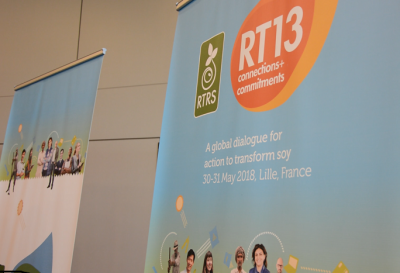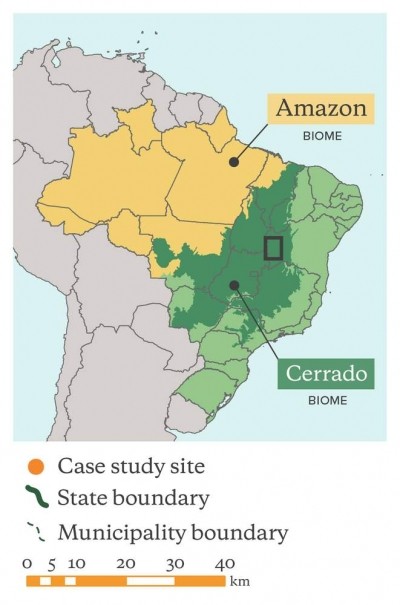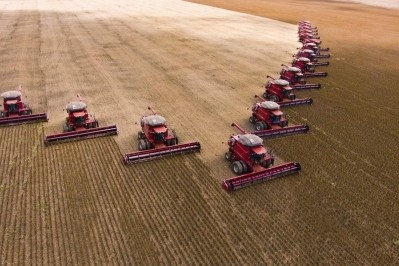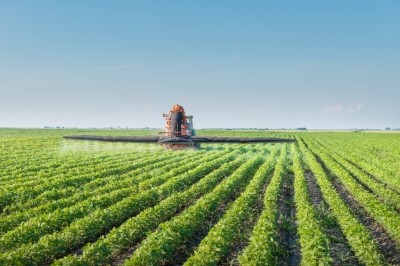The WWF says feed sector has a duty to source soy responsibly
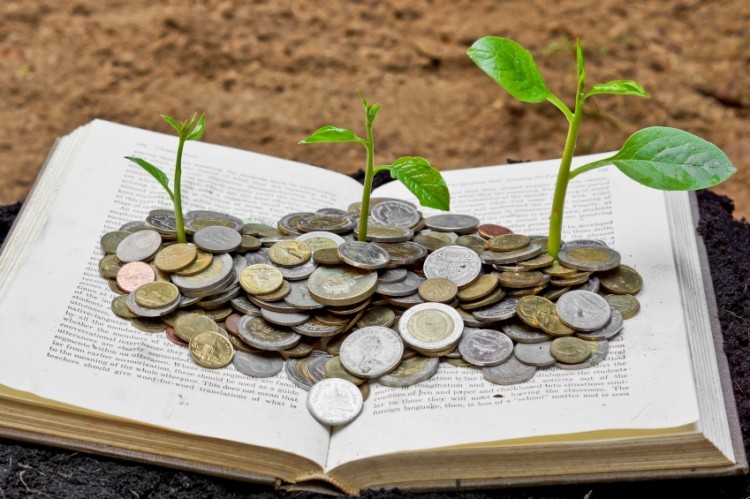
The World Wildlife Fund (WWF) released data from its report, Mapping the Soy Supply Chain in Europe, via social media to coincide with the annual conference of the Round Table on Responsible Soy (RTRS) last month.
With so much soy making its way into the EU food chain via animal feed, the organization believes the feed industry has a duty to source soy responsibly in order to prevent negative impacts on people and the environment.
“WWF’s main concern is the conversion caused by irresponsible soy production of forests and other natural habitats like savanna or natural grasslands in South America. At the same time, we are also concerned that land and labor rights are not always well respected, driving indigenous people from their land, or leading to bad social conditions. Irresponsible pesticide use is also an issue,” Sandra Mulder, acting lead for WWF’s soy team, told FeedNavigator.
Converting to responsible soy
To promote responsible soy production, she urged the animal feed industry to source only certified responsible soy, such as that produced under the RTRS scheme.
Outlining the process for making the switch to responsible soy, she said: “Step one is to commit to a time bound plan to source responsible soy. Step two is to start buying credits of RTRS, and step three is to move to physical supplies of responsible soy.”
Asked whether responsible soy carries a price premium, she replied: “RTRS credits are sold at such low prices that you can hardly call it a premium - more a cost recovery [certification costs]. Currently they are sold at around €1.50-€3.00 per ton.”
In 2014, approximately 300,000 tons of RTRS soy was sold into the animal feed industry.
Moving too slow
However, for the WWF, the sector as a whole isn’t making enough of a commitment to responsible soy.
“WWF is very concerned that the industry is not moving fast enough to responsible soy,” said Mulder.
The EU Feed Manufacturers’ Federation (FEFAC) defended the feed sector’s role to date in responsible soy sourcing. FEFAC president Ruud Tijssens told us the European feed industry had been committed to responsible soy for almost ten years, during which time there had been major improvements in all key soy exporting countries regarding environmental performance, agricultural practices and related social issues.
“We are convinced that we are on the right track with our action plan on responsible soy which obtained wide support from key soy value chain partners. We will be tackling the remaining ‘hot spots’ with more sophisticated tools such as the area-based risk assessment tool, currently in the pilot phase.”
He said FEFAC’s current action plan on responsible soy was to facilitate mainstream market supply of responsible produced soy.
“We have taken major steps over the past two years to establish a basis for mainstream market transition. The key step is the setting of minimum criteria in our own sector purchase guidance. These should reflect best practices on the producer’s side in key exporting countries coupled with key verification principles and an independent benchmarking system to help increasing market transparency for all our companies who are willing to take the steps.”
Beyond Europe
Europe is just one of several regions worldwide that buy large volumes of soy for use in animal feed, which begs the question whether European feed producers are being unfairly targeted for their soy sourcing practices.
The WWF says its reasons for concentrating on Europe have to do with the amount of soy being imported from South America as well as with identifying a leader and starting point for global transformation of the soy supply chain.
“Europe is an important market and has already been shown to be a front runner market in terms of sustainability, for example in palm oil. At the same time it is also ‘importing deforestation’ from South America at an alarming rate,” said Mulder.
She added that the WWF was starting to work on building awareness and a market for responsible soy in other parts of the world, such as the domestic markets in South America and China.
